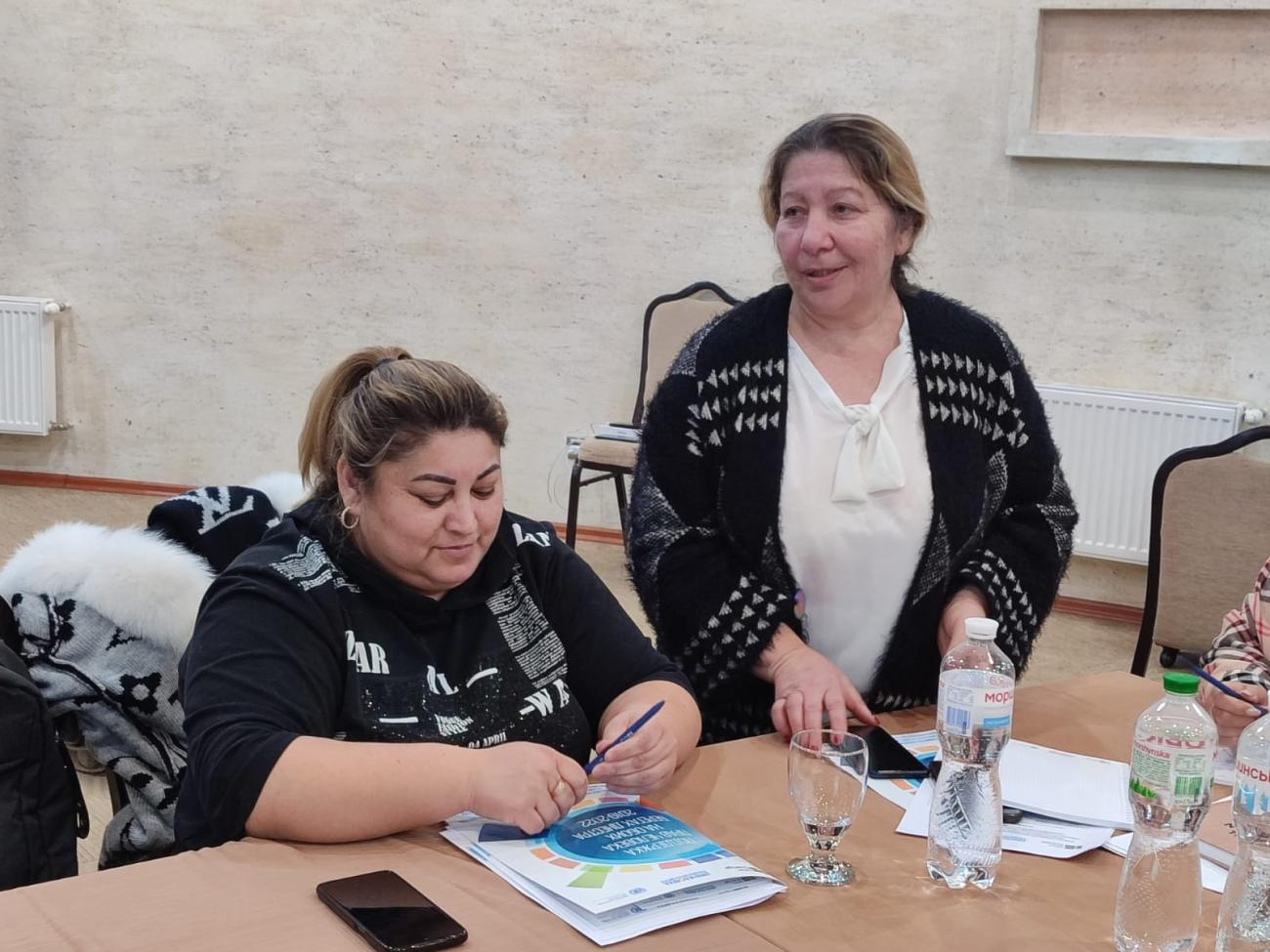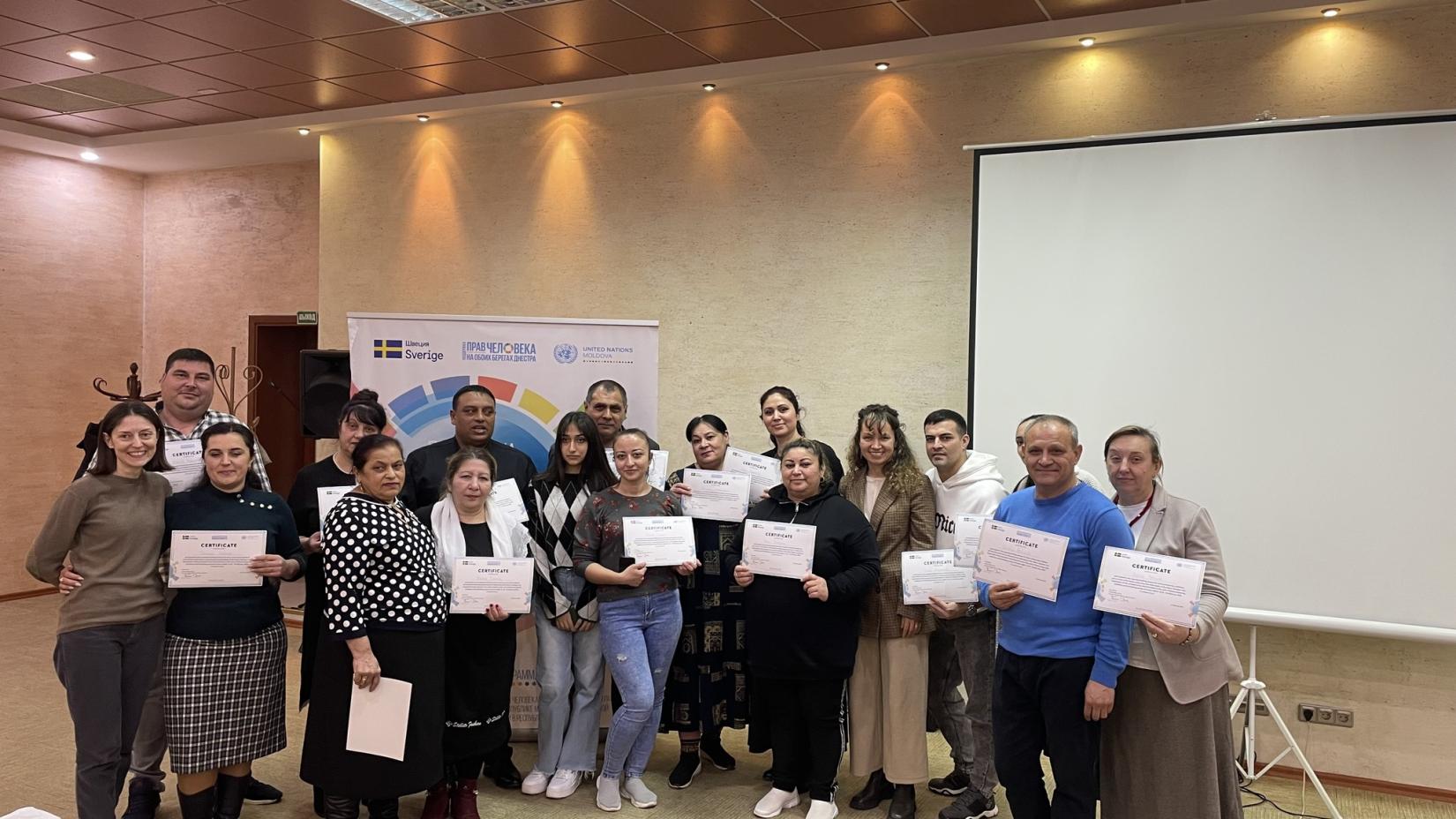20 Roma community mediators are trained to effectively advocate for the rights of Roma on both banks of Nistru/ Dniester river

A month ago, the Roma Community Mediators from all over the country met in Tiraspol.
"Even considering positive developments in society, ethnic discrimination is still a big problem, especially among young people in schools. I wanted to become a mediator to help stop discrimination and support those facing it," – confessed Oxana Stoica, a 19-year-old woman who recently became a Roma Community mediator in Călărași.
A month ago, early at 5:00 AM on a chilly February day, the Roma Community Mediators from all over the country left their warm homes to be on time to all meet up in Chisinau. From there, to embark on a journey to the Transnistrian region, where their counterparts were eagerly waiting for them. Their mission was clear - to enhance the support for the Roma community, ensuring that their rights were acknowledged and promoted on both sides of the Nistru/ Dniester River. To succeed with the committed mission, twenty Roma community mediators from both banks of the Nistru/ Dniester river took part in a practical two-day workshop in Tiraspol, to learn how to identify and fight discrimination, and how to seek practical ways to increase access to human rights for all Roma.

Under the leadership of UN Human Rights in Moldova (OHCHR), the workshop experts conducted a good mix of thematic presentations and interactive exercises, meant to increase the understanding of the root causes of discrimination, gender equality principles, key aspects of ensuring access to services for people living with HIV and people belonging to other marginalized groups. As a result, the workshop equipped the participating Roma Community Mediators with the full package of essential human rights skills and knowledge needed to effectively perform their functions.
The role of the community mediators in the communities densely populated by Roma is crucial. The impact of their activity is truly measured through the increased number of children now enrolled in schools, the increased number of Roma seeking health check-ups, and the larger numbers of expectant Roma mothers accessing prenatal care. About 400 Roma from the left bank of the Nistru/ Dniester river reached out to Roma community mediators for assistance in 2023, a number that continues to grow.
„Your involvement is vital. A comprehensive understanding of discrimination, its legal implications, and strategies to counter it, empower you to tackle discrimination at its core, facilitating meaningful progress for the Roma community", Ms. Bea Ferenci, Head of UN Human Rights in Moldova emphasized in her introductory message.
The workshop was also co-facilitated by experts from the UN Sister Agency UNAIDS Moldova, who delivered important knowledge on ensuring access to the right to health and preventing discrimination for people living with HIV.
"I became a mediator after seeing the difficulties Roma face, especially those who can't read or write or are afraid to reach out for help. The workshop gave me deeper insights into fighting discrimination," said Serghei Railean, a Roma Community Mediator on the left bank of Nistru/Dniester river sharing his impressions.
By the end of the intensive two-day workshop, an action plan was collaboratively drafted, committing to strategies that promised not just immediate relief but long-term solutions to the issues faced by the Roma community. This participatory engagement marked a significant step toward sustainable work for the ongoing challenges encountered by Roma, bridging gaps and uniting efforts in a common goal for equality and inclusion. The event was organized in collaboration with OHCHR cross-river partners - the National Association of Community Mediators (ANMC) from the right bank and the CSO “Tent over Nistru” from the left bank of Nistru/ Dniester river.
Since 2013, when Moldova institutionalized the profession, local authorities in areas with significant Roma populations have been tasked with hiring Roma mediators. Currently, 48 active Roma mediators are acting on the right bank of Nistru/ Dniester river, with eight newly appointed in 2023-2024. A 2020 OHCHR assessment revealed inequalities and challenges in education, healthcare, employment, and social protection for Roma communities on the left bank of Nistru/Dniester river. In the Transnistrian region, five Roma community mediators started to operate in five regions since September 2021 with support from OHCHR Moldova. The position of community mediator has not been institutionalized, they operate as part of an NGO.
The efforts to empower the Roma community are part of the One UN Joint Action “Cross-river support to Human Rights”, implemented by the United Nations in Moldova and funded by Sweden.




